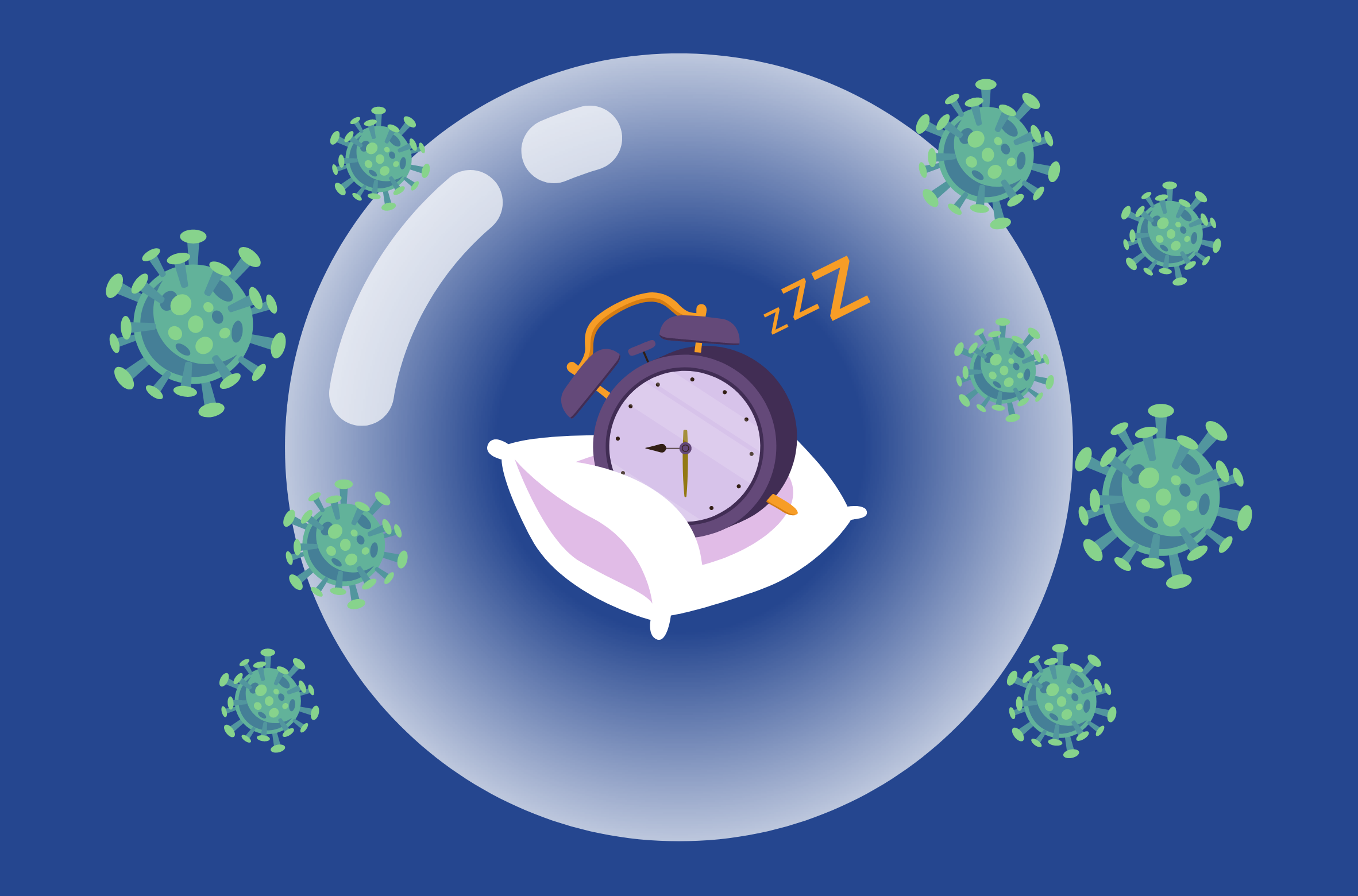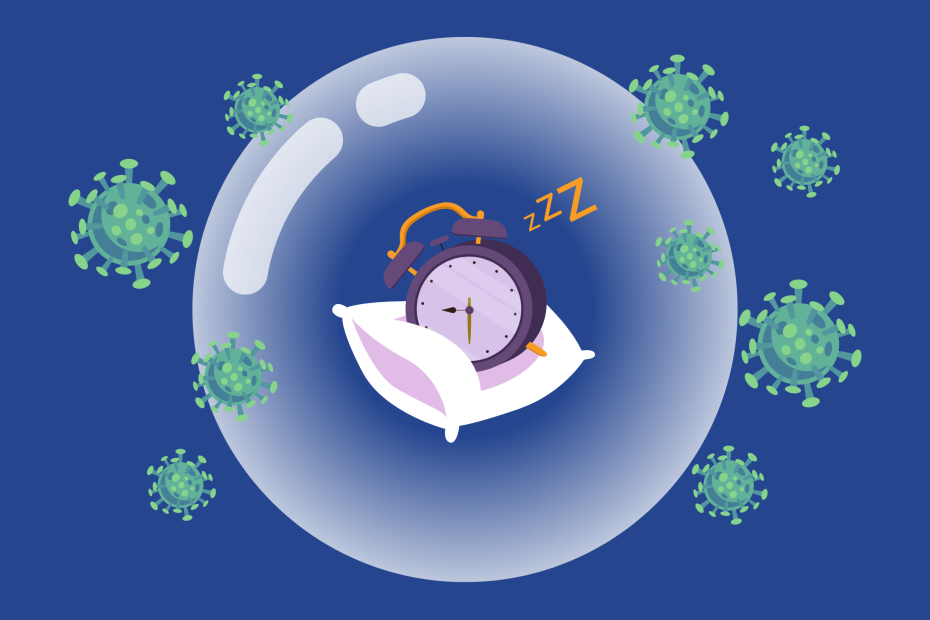There is emerging research on the connection between sleep and the risk for developing long-COVID. Here, we discuss three recent studies published in 2023 that suggest that sleep and sleep-related factors can influence the risk of developing Long COVID, which is characterized by persistent symptoms following a COVID-19 infection. These findings highlight the importance of sleep and its impact on immune function and overall health.
- Habitual Sleep Duration and Long COVID:
- One study found that people with pre-existing medical conditions who habitually sleep less than 6 hours a night are at a higher risk of Long COVID.
- The study analyzed data from 13,461 respondents in 16 countries who participated in the International COVID Sleep Study II (ICOSS II) in 2021.
- Short nighttime sleep duration, in particular, appeared to exacerbate the risk of Long COVID in individuals with pre-existing medical conditions.
- The study suggests that restoring nighttime sleep to an average duration may be a potentially modifiable behavioral factor to lower the odds of Long COVID for at-risk patients.
- Vaccination, sleep duration and Long COVID:
- Similar results were found in another study that analyzed Long COVID symptoms in people who had been vaccinated and received a booster shot.
- This study suggests that even among vaccinated individuals, those who habitually sleep less than 6 hours remain at a higher risk for Long COVID.
- Obstructive Sleep Apnea (OSA) and Long COVID:
- This study focused on obstructive sleep apnea (OSA) (or snoring) as a potential risk factor for Post-Acute Sequelae of SARS-CoV-2 (PASC), which is another term for Long COVID.
- People with OSA typically have poor quality sleep. Even if a person with OSA gets >6 h of sleep, the poor quality of sleep can negate the good effect of sufficient sleep duration. The study found that adults with preexisting OSA were at a significantly higher risk of probable PASC.
- The study suggests that patients with OSA should be monitored for post-acute sequelae following SARS-CoV-2 infection.
These findings emphasize the importance of sleep quality and duration, as well as underlying sleep disorders like OSA, in the context of COVID-19 and Long COVID. Adequate and restorative sleep is known to be crucial for a well-functioning immune system, and these studies suggest that it may play a role in the risk of developing Long COVID, especially among individuals with pre-existing medical conditions. However, it’s important to note that more research is needed to fully understand the relationship between sleep and Long COVID and to establish causation. Meanwhile, those who habitually sleep less than 6 h or those who suffer from OSA, should pay more attention to improving their sleep duration and sleep quality.
 share
share



